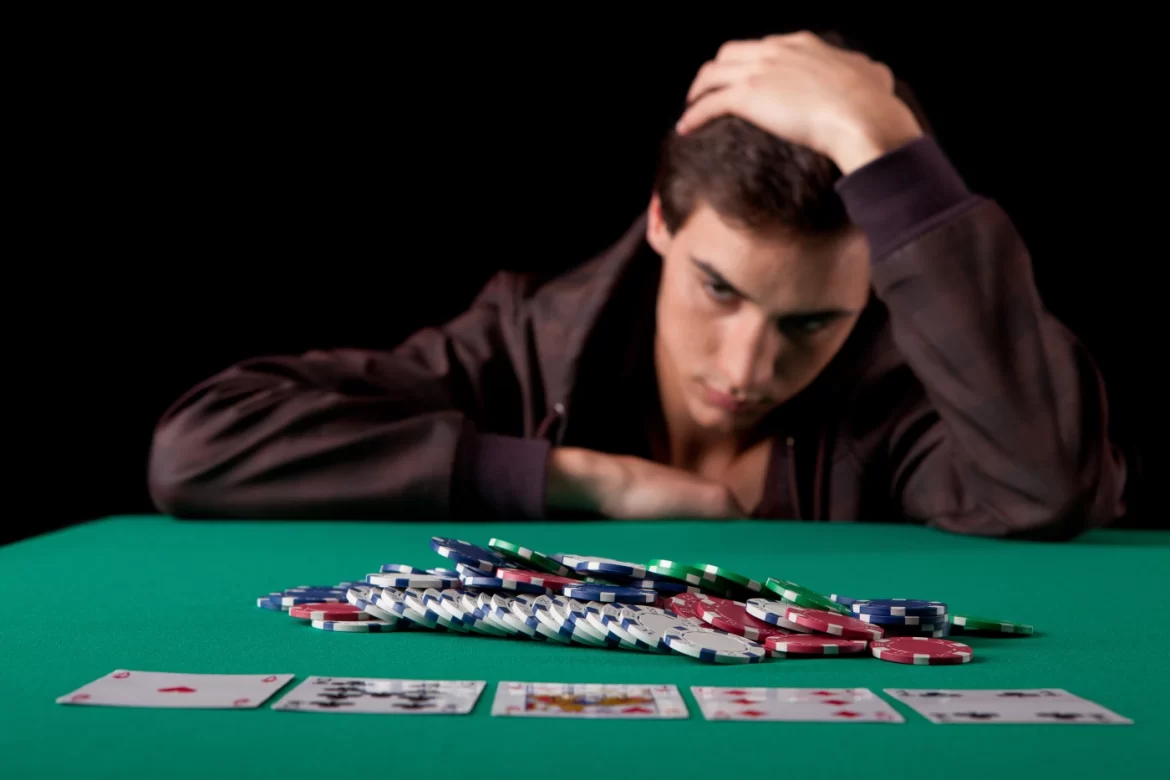It’s no secret that gambling addiction can wreak havoc on your life. It has a way of getting inside your head and leaving you feeling vulnerable, weak and hopeless. The stress and guilt that come with it can be overwhelming, and they’re often enough to make even the strongest person consider taking their own life.
But the mental toll isn’t the only problem. As bills go unpaid and debts continue to pile up, businesses are forced to borrow from loved ones just to get by, pushing them further into debt with each passing day.
Gambling harms relationships, hurts finances and destroys mental health in a number of ways. It strains interpersonal bonds, drains bank accounts, triggers depression and anxiety, lowers self-esteem and so much more. Knowing what signs to look for is crucial if you want to stop it before it’s too late.
People who are addicted to gambling will lie about how much they do it or withdraw themselves from social situations entirely. They’ll borrow money or sell their things just so they can bet on another game or buy another ticket; And even though they know they’re going to lose everything as soon as they walk through those doors again — their legs won’t stop moving.
Sport betting might seem like a harmless hobby at first glance, but there’s no denying the danger associated with it. By presenting both sides of the story in an objective fashion we can create a better understanding for society while still maintaining journalistic integrity.
Losing is hard for anyone — especially when there’s money on the line — but defeat is never worth putting someone else down for. Sadly, many gamblers let their negative emotions get the best of them. Their friends will feel unloved because they keep canceling plans and their family will say they don’t care anymore because all they care about is winning big.
Depression sets in quickly when you realize how much money you’ve lost over time. Gambling-related thoughts might not seem all that harmful, but they can easily spiral into serious mental health issues. If you or someone you know is experiencing these symptoms, it’s important to reach out to a professional as quickly as possible. A therapist can teach you techniques for breaking the addiction while addressing the impact it has on your life and beliefs around gambling.
No one knows how to ruin a relationship quite like a compulsive gambler does. They’ll stop at nothing to get their next fix. Whether that means lying about what they’re doing or selling everything they own — no stone will be left unturned. The constant need for more wins will consume them until there’s nothing left.
Depression isn’t something that goes away on its own, especially when it comes hand-in-hand with another addiction. The financial costs of gambling can easily trigger feelings of hopelessness, anxiety and despair which are almost impossible to shake without professional help. In this case, cognitive behavioral therapy is an effective treatment method as it targets both conditions separately in order to enhance overall emotional well-being.
When gambling takes over your life, everything else falls by the wayside. Your friends start thinking that you don’t want anything to do with them anymore; Your partner starts wondering why you never come home from work anymore — And before you know it, your boss fires you because all you care about is the next bet.
It’s easy for people suffering from gambling problems to feel isolated and alone in their struggles; But group therapy along with other self-care practices such as volunteering or exercise can provide meaningful experiences and remind them that there’s so much more to life than money.
But the worst part about it all? The money — Or rather, the lack of it. When debts continue to pile up and bills go unpaid, stress levels rise and relationships crumble even further than they already had been before; Leaving everyone involved broke, alone and with no idea where to turn next.
A study conducted by analysing bank transactions revealed that the average annual gambling expenditure of £1,345 ($1,865) is more than three times higher than the national average. Partners of gambling addicts often report going without essential household items and quality food as well as struggling with credit card debt and utility bills.
Isolation
The impact on both financial and social wellbeing can be severe. Gambling can cause people to miss out on important activities such as working or spending time with friends and family, causing them to lose a support network. This could be particularly problematic for certain marginalized groups like older adults or LGBTQ+ people.
There’s evidence to suggest a link between loneliness and gambling. It could be that gambling provides an escape from feeling socially isolated, but it can also lead to the end of relationships, debt problems and missed opportunities. It’s important to seek help if you think you might have an addiction and find healthier ways to connect with others.




